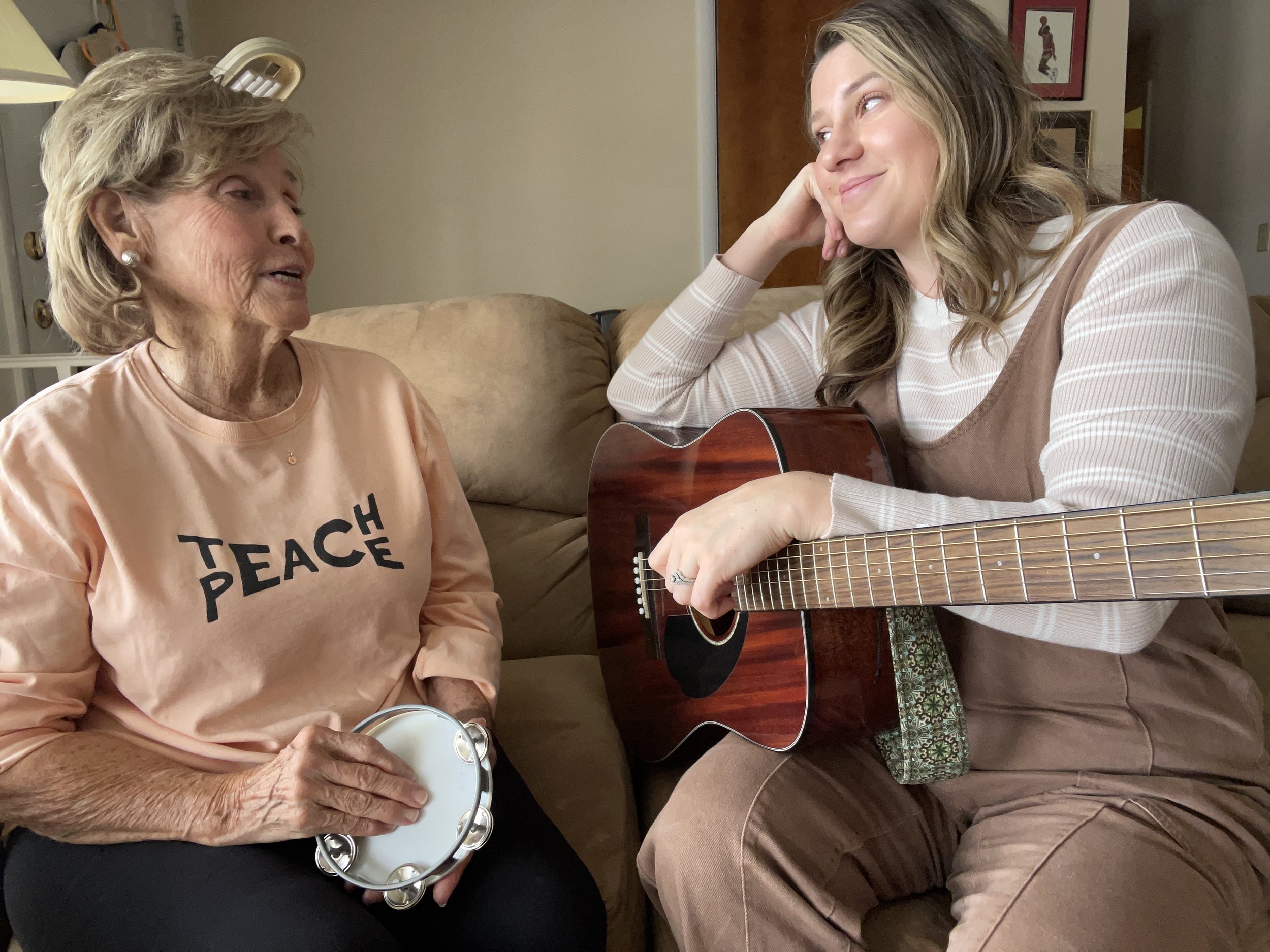Oliver Sacks once said, “The power of music to integrate and cure … is quite fundamental. It is the profoundest non-chemical medication.” Music therapy is a vital, evidence-based practice that enhances the quality of life for hospice patients by addressing their physical, emotional, and spiritual needs. A board-certified music therapist facilitates various interventions that assess and focus on these clinical needs. Music therapy provides a unique creative process to increase quality of life for hospice patients.
Understanding Hospice Care
Hospice care is care for patients approaching the end of their life and focuses on providing comfort and quality of life. Many hospice patients experience pain, fatigue, nausea, difficulty breathing, or discomfort due to an illness and the goal for hospice care is to minimize these symptoms as much as possible. The hospice team consists of nurses, doctors, and aids, as well as social workers, chaplains, volunteers and other disciplines, like music therapists, to provide relief from various needs. These disciplines together provide a holistic approach to end-of-life care addressing physical, emotional, social and spiritual concerns. Therefore the hospice team is able to address physical symptoms, like pain or discomfort, as well as psychological needs, such as anxiety, depression, social isolation, or existential concerns.
 What is Music Therapy?
What is Music Therapy?
Music therapy is an evidence-based, flexible, clinical practice that focuses on achieving non-musical goals using live, client-preferred music. Music therapy is provided by a board-certified music therapist that has been trained in music, psychology, group interactions, and clients’ needs in an academic setting as well as during a six month internship before completing a credential exam. Music therapy is utilized in a variety of settings such as hospices, schools, hospitals, community mental health centers, and many other settings. The role of a music therapist in hospice is vital in addressing patient’s physical, emotional, and spiritual needs. The music therapist works together with the entire interdisciplinary team to create a customized plan of care for each patient. The music therapy plans compliment pain interventions provided by the nurses and doctors as well as increase the quality of life for hospice patients. Furthermore, the music therapist facilitates various interventions with a variety of therapeutic techniques to address these needs. These interventions and therapeutic techniques include improvisation, songwriting, guided imagery, life review, guided relaxation, and lyric analysis and discussion.
While working with patients who were at a nursing facility for a respite stay, the music therapist found that one particular patient appeared to be in a lot of pain as the patient moaned and stated she had pain. The music therapist facilitated a guided relaxation in which the patient gradually stopped moaning and eventually fell asleep.
One caregiver stated “My mom started to sing along with the music therapist even though her speech was limited. It was incredible.”
The Future of Music Therapy in Hospice Care
Music therapy in hospice care is growing and being accepted as an integral part as more hospice organizations understand the importance and benefits of music therapy. In 2011, the American Music Therapy Association (AMTA) found that about 62% of US hospices and home-health agencies offer music therapy. This inclusion of music therapy in hospice care can increase as individuals advocate for music therapy for its inclusion in end-of-life care plans. However, establishing a music therapy program in a hospice organization can be difficult as funding for music therapy from Medicaid or Medicare is extremely limited. Many music therapists across the US are advocating and asking for a change in policy so that music therapy could be included as a discipline in hospice care. Furthermore, as music therapy is an evidence-based practice, more studies are being conducted to provide research and evidence on the benefits of music therapy in hospice care.
Music therapy provides many benefits to hospice patients including physical, emotional, psychological, social, relational, and spiritual benefits. Please support music therapy programs in hospice care and consider advocating for its inclusion in end-of-life care plans with organizations near you.
Written By:
Tyler Wray, SCMT, MT-BC
(Board-Certified Music Therapist)
Kienna Parkin-Choi, MT-BC

